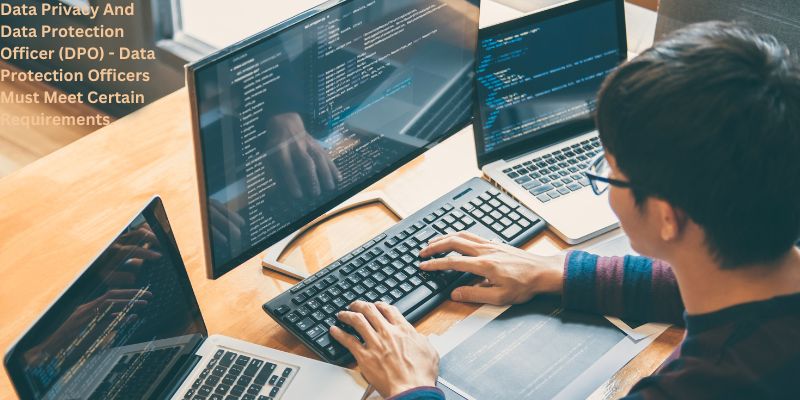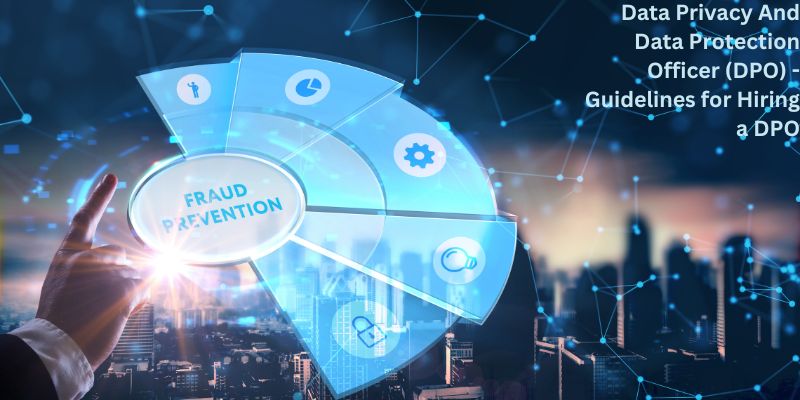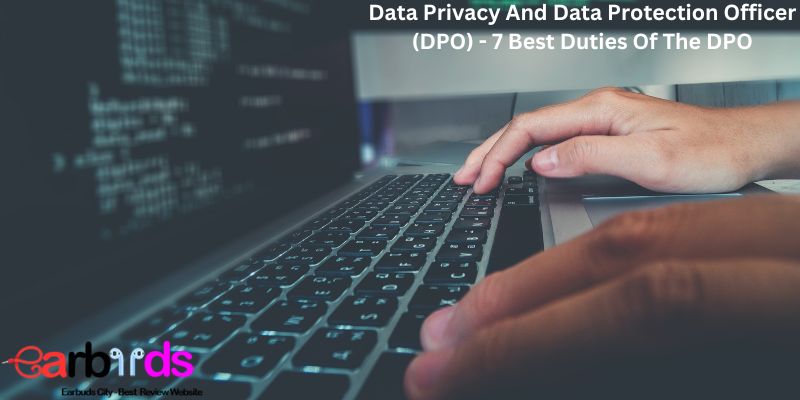Data privacy and data protection (DPO) have become increasingly important in today’s digital age. With the vast amount of personal information being shared and stored online, individuals and organizations alike are concerned about the security and privacy of their data. This has led to the rise of the data privacy and data protection officer (DPO), a role dedicated to ensuring that data is handled in a responsible and compliant manner. In this blog, earbudscity.com will explore the role of a DPO and the importance of data privacy and protection in today’s society. Stay tuned to learn more about this vital aspect of our digital world.
1. Data Privacy And Data Protection Officer (DPO) – What You Should Know About It?

The primary duty of the data protection officer (DPO) is to ensure that her organization’s processing of personal data pertaining to its clients, employees, suppliers, or other individuals (sometimes referred to as data subjects) conforms with the applicable data protection regulations. Each of the EU institutions and organizations must appoint a DPO in accordance with the relevant Data Protection Regulation (Regulation (EU) 2018/1725). As of May 25, 2018, Regulation (EU) 2016/679, which requires some organizations in EU nations to hire a DPO, will be in effect.
2. Data Privacy And Data Protection Officer (DPO) – The Obligations And Responsibilities Of The Data Protection Officer.
According to Article 37 of the GDPR, any organization that collects or processes the personal data of EU people must have a data protection officer. DPOs are in charge of performing routine security audits, training staff members involved in data processing, and educating the organization and its workers about compliance. Additionally, DPOs operate as the company’s point of contact with any Supervisory Authorities (SAs) that regulate data-related activity.
The following are only a few of the duties of the DPO, which are listed in GDPR Article 39:
- Educating the business and staff about crucial compliance standards.
- Educating the data processing workforce.
- Conducting audits to verify compliance and prevent concerns before they arise.
- Serving as the company’s primary point of contact with GDPR Supervisory Authorities.
- Keeping an eye on results and offering guidance on how data protection measures are faring.
- keeping thorough records of all data processing operations carried out by the business, including the goals of each processing operation, which must be made available to the public upon request.
- Communicating with data subjects to explain how their info is being used, their ability to have it deleted, and the security measures the organization has in place to secure their personal information.
3. Data Privacy And Data Protection Officer (DPO) – Data Protection Officers Must Meet Certain Requirements.

Article 37 of the GDPR stipulates that a data protection officer must possess “expert knowledge of data protection law and practices.” While the GDPR does not offer a precise list of DPO qualifications, it does state that it is necessary. The legislation further states that the DPO’s experience must correspond to the organization’s data processing activities and the degree of data protection necessary for processing activities carried out by data controllers and processors.
DPOs may be employees of controllers or processors, and linked companies may use the same person to monitor data security on a group basis, provided that the DPO is readily available to all parties at those associated organizations. All regulatory oversight organizations must receive and review the DPO’s information before it is made public.
In order to avoid conflicts of interest, data protection officers must not now do any tasks or fulfill any obligations that clash with those related to monitoring. For instance, a lawyer who may defend the business in court would be deemed to have a conflict of interest and would not be suitable to act as the DPO. Companies who fail to comply with this rule risk fines of up to €10 million or 2% of their global revenue, whichever is higher.
4. Data Privacy And Data Protection Officer (DPO) – Guidelines for Hiring a DPO

It is anticipated that tens of thousands of DPOs would be required for all regulated businesses to achieve GDPR compliance since enterprises that handle the data of EU people are subject to GDPR even if they are not based in the EU.
The top DPOs will be knowledgeable about data security regulations and well aware of their organization’s technical and organizational setup as well as IT infrastructure.
The DPO may be chosen from within current staff members or hired from outside. Companies and organizations should search for applicants who can oversee data protection and compliance on an internal level while informing the appropriate Supervisory Authorities of any non-compliance. The ideal DPO will be trustworthy and autonomous, without any obligations that can conflict with their duties as DPO in terms of monitoring.
A DPO should ideally be a very effective manager who can work well with both internal workers at all levels and external authorities. Even though the business can face significant fines, the competent DPO will also enforce internal compliance and notify the authorities about cases of non-compliance.
Conclusion
In conclusion, data privacy and data protection officers play a critical role in ensuring the security and integrity of personal and sensitive information. By implementing and overseeing effective data protection policies and procedures, these officers safeguard the privacy rights of individuals and ensure compliance with data protection regulations. Their expertise and dedication are vital in a digital age where the collection, storage, and processing of data are increasingly prevalent.
Organizations that prioritize the appointment of a qualified data privacy and data protection officer demonstrate their commitment to upholding privacy standards and building trust with their customers and stakeholders. The role of the DPO is not only essential for legal compliance but also for maintaining a strong ethical framework in today’s data-driven world.




